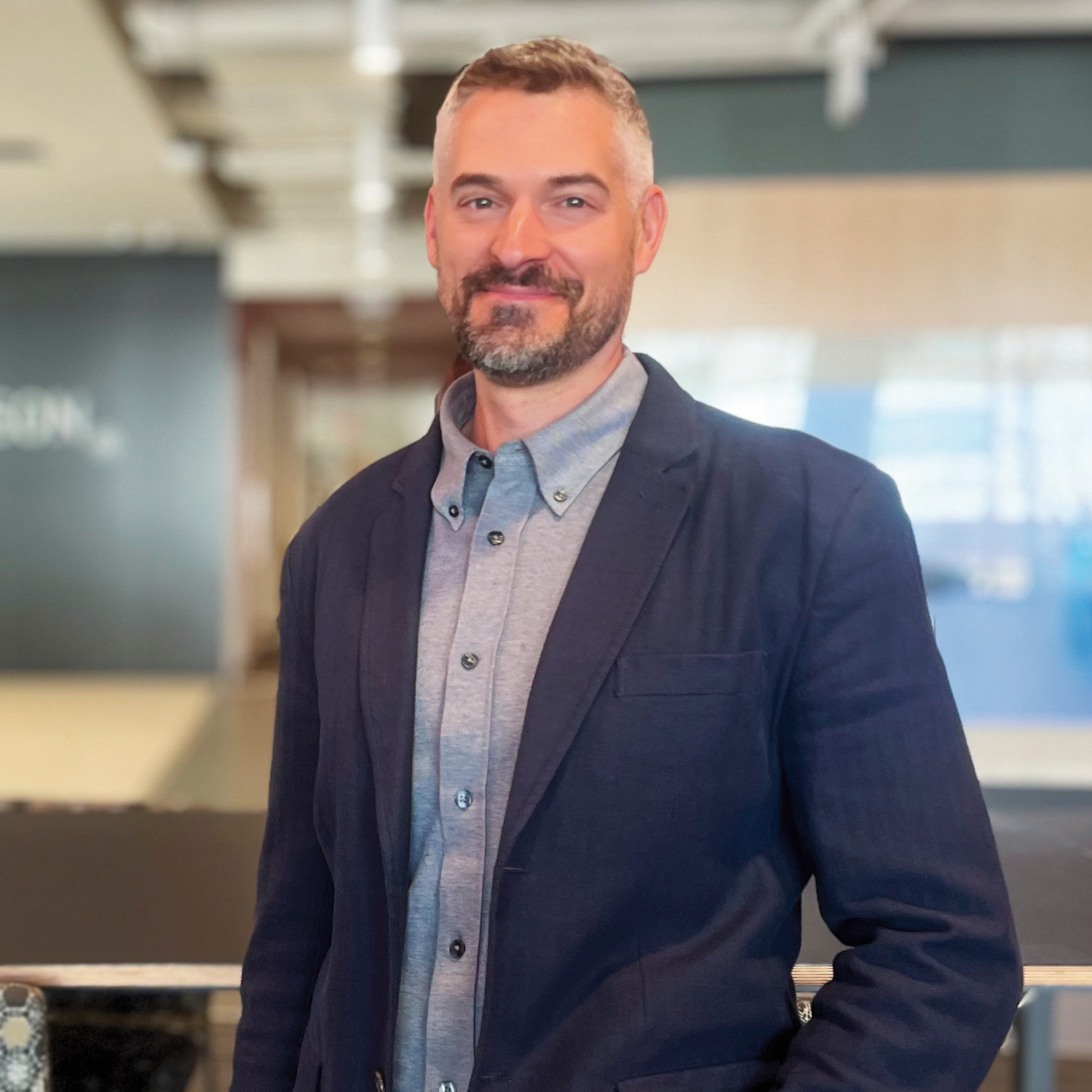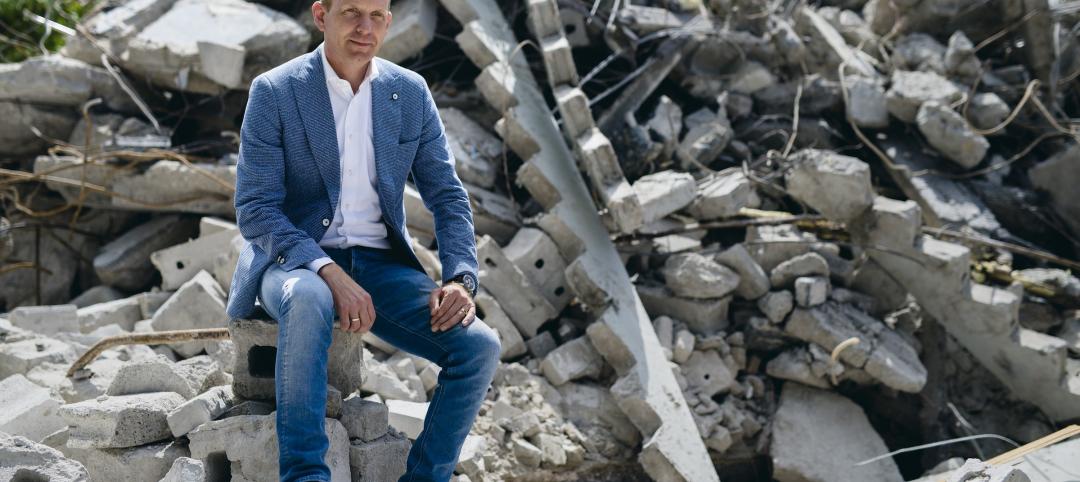Last month, Kraus-Anderson, the construction management and real estate development firm, announced that it had hired Nate Enger as Design Phase Services Manager to act as a go-between for the firm and its architect partners. Enger, an architect himself, has more than two decades of design collaborative expertise, most recently as a partner and vice president with ESG Architecture & Design. He also worked as a senior design architect with Ryan Companies. Enger and Chad Rempe, Kraus-Anderson’s other Design Phase Services Manager, spoke to BD+C via email about their roles. The following is an edited version of that conversation.
BD+C: In your capacity as design phase services manager, you will act as a liaison between Kraus-Anderson’s precon services and the architect-designers it works with on projects. How do you see the scope of your responsibilities?
Enger: We see this role as an opportunity to educate and align the team with holistic project goals, which include architecture, but also focus on finding ways for the full project team to innovate outside of the constraints of traditional project delivery methodology. My role will be to help catalyze collaboration during the formative phases of the project to realize value for our owners, and to help foster a culture of mutual project ownership among project teams.
Why did the firm feel the need to bring on a design-phase service manager at this time?
Rempe: Prior to hiring Nate, I've been the only Design Phase Services Manager within our Preconstruction Team. With Nate joining our team, we're doubling our capacity to better serve our clients and project teams in managing the design and preconstruction phase of a project. As a Design Phase Services Manager, Nate will [work with] our project architect/design partners to ensure project teams are aligned on the project goals and objectives, while also ensuring the right resources are engaged at the right time to deliver effective and efficient design.
Aside from Nate, does Kraus-Anderson have any other architects or designers in its employ?
Rempe: Kraus-Anderson does have two additional architects on staff. One works within our Preconstruction Team as a Building Science Manager, and another works as a Strategic Facility Planner.
Aligning designers with firm's project team
Nate, your resume includes stints with architecture and construction firms. How might that background color your perspective about projects and team collaboration?
Enger: I believe the key to successful partnerships is context. Working within both [architects and contractors] gives me unique insight into the objectives and values that drive the two sides of the industry. Knowing what defines success for each of these groups (among the many [factors] that contribute to the design and construction of projects) affords an opportunity to identify common ground and context on which to form a partnership of mutual respect, shared passion, and diversity of thought.
The opportunities and challenges we have as an industry will benefit from a true collaboration that harnesses these varied skillsets under a model that encourages knowledge sharing and innovation, in contrast to an approach of accepting partners as a necessity of the process.
We recently posted an article about a cancer center in California that's being designed and built under a Collaborative Project Delivery contract. Does your hire in any way signal what kinds of project contracts Kraus-Anderson favors, now and in the future?
Enger: I cannot speak specifically to contracts, as often we cannot control the type of contract vehicle that is executed. What I can say is that the intent we have through my hiring and many other exciting changes afoot here at Kraus-Anderson is to provide owners with more comprehensive project evaluation, earlier in the process, utilizing flexible team structures to solve challenges unique to each project. We plan to do this through identifying a shared set of values between ownership and the broad project team, breaking down traditional structures between disciplines that roadblock collaboration and innovation, and providing open, transparent, and timely access to project data as it is developed.
What are the first projects Nate will be working on?
Rempe: A few of the initial projects will be for KA's development team working through conceptual master planning efforts.
Related Stories
Student Housing | Mar 5, 2023
Calif. governor Gavin Newsom seeks to reform environmental law used to block student housing
California Gov. Gavin Newsom wants to reform a landmark state environmental law that he says was weaponized by wealthy homeowners to block badly needed housing for students at the University of California, Berkeley.
Green Renovation | Mar 5, 2023
Dept. of Energy offers $22 million for energy efficiency and building electrification upgrades
The Buildings Upgrade Prize (Buildings UP) sponsored by the U.S. Department of Energy is offering more than $22 million in cash prizes and technical assistance to teams across America. Prize recipients will be selected based on their ideas to accelerate widespread, equitable energy efficiency and building electrification upgrades.
Windows and Doors | Mar 5, 2023
2022 North American Fenestration Standard released
The 2022 edition of AAMA/WDMA/CSA 101/I.S.2/A440, “North American Fenestration Standard/Specification for windows, doors, and skylights” (NAFS) has been published. The updated 2022 standard replaces the 2017 edition, part of a continued evolution of the standard to improve harmonization across North America, according to a news release.
AEC Innovators | Mar 3, 2023
Meet BD+C's 2023 AEC Innovators
More than ever, AEC firms and their suppliers are wedding innovation with corporate responsibility. How they are addressing climate change usually gets the headlines. But as the following articles in our AEC Innovators package chronicle, companies are attempting to make an impact as well on the integrity of their supply chains, the reduction of construction waste, and answering calls for more affordable housing and homeless shelters. As often as not, these companies are partnering with municipalities and nonprofit interest groups to help guide their production.
Modular Building | Mar 3, 2023
Pallet Shelter is fighting homelessness, one person and modular pod at a time
Everett, Wash.-based Pallet Inc. helped the City of Burlington, Vt., turn a municipal parking lot into an emergency shelter community, complete with 30 modular “sleeping cabins” for the homeless.
Codes | Mar 2, 2023
Biden Administration’s proposed building materials rules increase domestic requirements
The Biden Administration’s proposal on building materials rules used on federal construction and federally funded state and local buildings would significantly boost the made-in-America mandate. In the past, products could qualify as domestically made if at least 55% of the value of their components were from the U.S.
Industry Research | Mar 2, 2023
Watch: Findings from Gensler's latest workplace survey of 2,000 office workers
Gensler's Janet Pogue McLaurin discusses the findings in the firm's 2022 Workplace Survey, based on responses from more than 2,000 workers in 10 industry sectors.
AEC Innovators | Mar 2, 2023
Turner Construction extends its ESG commitment to thwarting forced labor in its supply chain
Turner Construction joins a growing AEC industry movement, inspired by the Design for Freedom initiative, to eliminate forced labor and child labor from the production and distribution of building products.
Multifamily Housing | Mar 1, 2023
Multifamily construction startup Cassette takes a different approach to modular building
Prefabricated modular design and construction have made notable inroads into such sectors as industrial, residential, hospitality and, more recently, office and healthcare. But Dafna Kaplan thinks that what’s held back the modular building industry from even greater market penetration has been suppliers’ insistence that they do everything: design, manufacture, logistics, land prep, assembly, even onsite construction. Kaplan is CEO and Founder of Cassette, a Los Angeles-based modular building startup.
AEC Innovators | Feb 28, 2023
Meet the 'urban miner' who is rethinking how we deconstruct and reuse buildings
New Horizon Urban Mining, a demolition firm in the Netherlands, has hitched its business model to construction materials recycling. It's plan: deconstruct buildings and infrastructure and sell the building products for reuse in new construction. New Horizon and its Founder Michel Baars have been named 2023 AEC Innovators by Building Design+Construction editors.

















